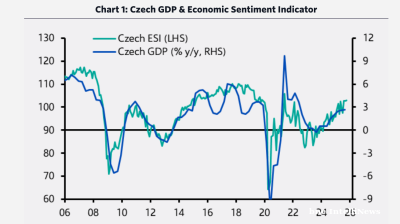Members of the lower chamber of the Czech parliament have passed legislation which enhances the rights of same sex couples, with 123 legislators voting in favour out of the 176 present.
It is a far cry from the legislation originally aimed at introducing marriage for all, but this was staunchly opposed by the powerful conservative wing in the parliament, which cuts through several parties across the political spectrum.
Czechia already allows registered partnerships and polls show that a majority of people backs marriage for all. In Central and Eastern Europe, only Estonia and Slovenia permit same sex marriages, with Czechia, Croatia and Hungary permitting registered partnerships of same sex couples.
If the legislation makes it through the Senate and is signed by the president, couples who live in the “partnership” will be entitled to a widow’s pension and will be able to have shared property and shared rent.
“If anyone thinks we have closed down the topic of marriage for all with the voting, then they are mistaken,” Barbora Urbanova, a legislator from the centrist Mayors and Independents party (STAN), told Czech Radio shortly after the vote on February 28.
She praised that it is now possible to advance some improvements for same sex couples but described the voting as “demanding, because speeches, which were made, must have hurt people, who are affected” by the legislation.
Legislators from STAN, the socially liberal Pirate Party and liberal centre-right TOP 09 party, who backed the original marriage for all legislation, stated during a joint press conference that “dividing of people into two categories remains in place”.
Partners in the partnership will now have parental rights to their children if one of the partners is a biological parent. Same sex couples still face obstacles to adopt children from orphanages.
The cabinet’s envoy for human rights, Klara Simackova Laurencikova, praised the improvements and regretted the “optimal variant of marriage for all” did not pass, adding that “I believe that in the future this will be implemented in the Czech Republic”.
The legislation will have to be approved by the upper chamber, the Senate, which rejected the ratification of the Istanbul Convention against violence on women in a shocking decision last month. The Senate had previously long been viewed as a democratic bastion of the Czech institutions during the past decade marked by the surge of populist politicians such as the leader of the ANO party, billionaire ex-Prime Minister Andrej Babis and nationalist ex-President Milos Zeman.
Babis’ ANO, which is the largest party in the lower chamber, also opposes marriage equality — a problematic stance for the nominally liberal Renew Europe group in the European Parliament, of which ANO is a member.
Czechia has long been seen as a liberal champion in the region, but after nearly two decades of mostly populist and right-wing governments, the country has largely stalled in developing a more robust equal rights legislation.
News

US push to pressure Iran providing fresh incentive for trans-Caspian pipeline
Turkmenistan showing interest in the idea.

US–China soybean sales restart
According to Scott Bessent, US Treasury Secretary, the agreement marks a significant step towards restoring normalcy for American farmers.

Russia faces $50bn annual losses from oil sanctions as Lukoil exits international assets
Russia is expected to lose at least $50bn annually due to oil-related sanctions, as Moscow’s largest private oil producer Lukoil agrees to sell its international assets and Germany considers nationalising operations owned by state-run Rosneft.

Chicken and chips in Seoul - for Nvidia, Samsung and Hyundai
In a low-key fried chicken shop in southern Seoul, the leaders of Nvidia, Samsung Electronics and Hyundai Motor held an informal meeting on the evening of October 30.




